‘Talking about it is enough to make me cry’: Victims of 2002 Bali bombings endure years of trauma and neglect
Oct 12 marks the 20th anniversary of the 2002 Bali bombings. In the third part of a series, CNA looks at how local victims are coping with their physical and emotional scars.
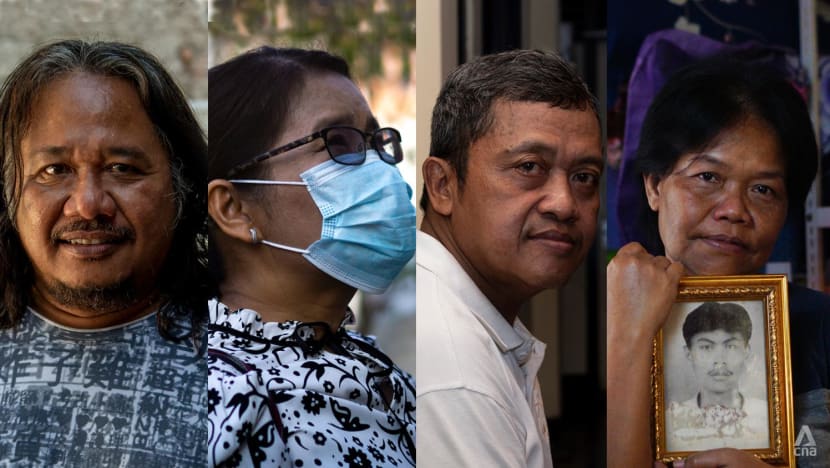
Victims of the 2002 Bali bombings: (left to right) I Dewa Ketut Widia Putra, Thiolina Marpaung, Jatmiko Bambang Supeno and Nyoman Rencini. (Photos: CNA/Nivell Rayda)
BALI, Indonesia: As I Dewa Ketut Widia Putra’s car made its way through Legian Road, a narrow one-way thoroughfare in the popular tourist area of Kuta in Bali, traffic had ground to a standstill.
It was a Saturday night and Legian, a stretch known for nightclubs, bars and souvenir shops, was packed with tourists.
Unbeknownst to him, a suicide bomber armed with 1kg of explosives hidden inside his backpack had walked into a crowded pub called Paddy’s. He detonated the bomb just after 11pm on Oct 12, 2002, killing several people instantly and knocking out a nearby electricity pole.
Seconds later, another more powerful bomb exploded, this time from a white Mitsubishi van packed with hundreds of kilograms of explosives. The bomb was detonated as the van was passing a crowded nightclub named Sari, less than 20m from where Putra’s car was.
The shock wave from the second blast lifted Putra’s car up in the air and knocked him unconscious.
When he opened his eyes, he found that his clothes were torn to bits. His face and body was covered in blood as well as shards of glass from the broken windshield.
Putra suffered severe burns on his left arm and chest. He had to undergo an operation on his left eye which was damaged from the blast. It took him months before he recovered from his injuries. But even then, he had lost 20 per cent of his eyesight on his left eye.
The psychological trauma took a much longer time to heal.
“Hearing loud sounds used to terrify me. I used to hide whenever I heard fireworks on New Year’s Eve. It took me five years before I got over that fear,” the now 55-year-old said.
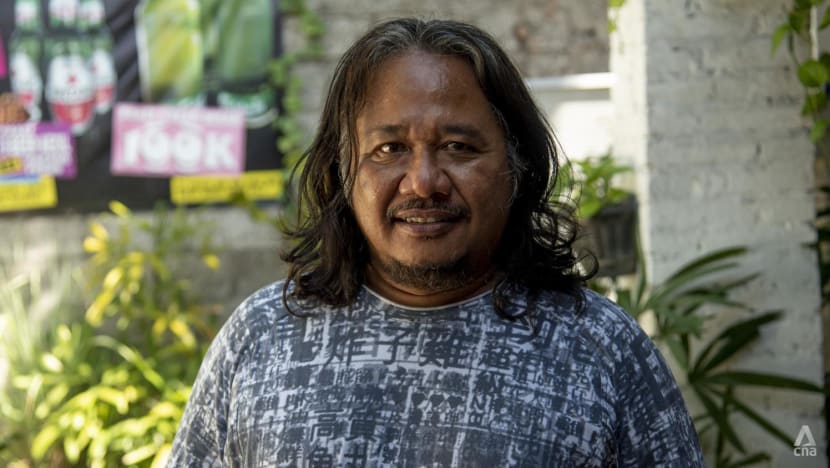
“But the trauma that wouldn’t heal is whenever I find myself stuck in traffic. My hand feels cold. I get paranoid and can’t help but thinking whether there will be another bomb and where the explosion come from. Even now, 20 years after the incident.”
The 2002 Bali bombings claimed the lives of 202 people of 22 different nationalities, making it the deadliest terrorist attack in Indonesia’s history.
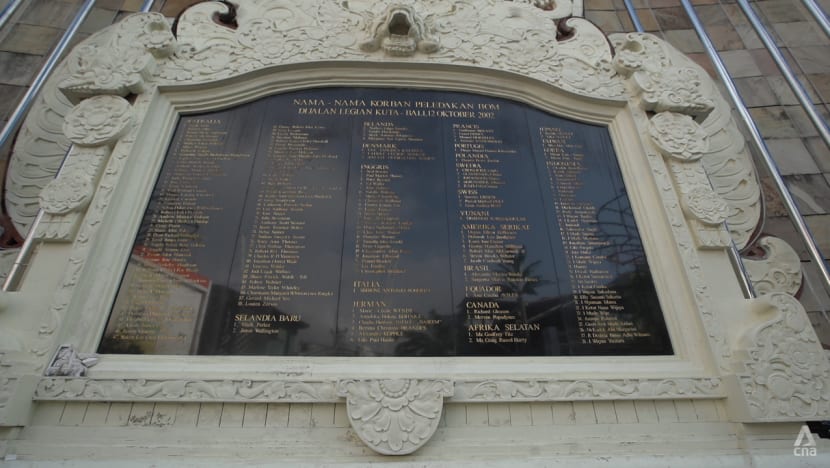
The bombings – blamed on the Al Qaeda-linked Jemaah Islamiyah terrorism network – also injured at least 300 more. Some of them became permanently disabled from the ordeal while others like Putra have to endure years of psychological trauma.
It also cost victims their livelihoods as some families struggled to cope with the loss of their sole breadwinners.
For years, the local victims received little support from the authorities. It was only in 2020 that they were finally awarded compensation by the government.
YEARS OF LIVING IN PAIN
Thiolina Marpaung was in the backseat of Putra’s car when the attacks occurred. Her injuries were far worse. The wave of shrapnel and shards of glass caused by the second blast damaged both her eyes so badly that she could not see anything for days.
Marpaung, who was a colleague of Putra, spent the next six years in and out of hospitals to repair the damage to her eyes. She also had to undergo multiple surgeries in Indonesia and Australia. Even then, she could only regain a fraction of her eyesight.
“My eyes cannot focus correctly and quickly. The alignment is also off. I cannot cope with sudden changes in light. At night, it is very hard for me to see anything at all,” she told CNA.
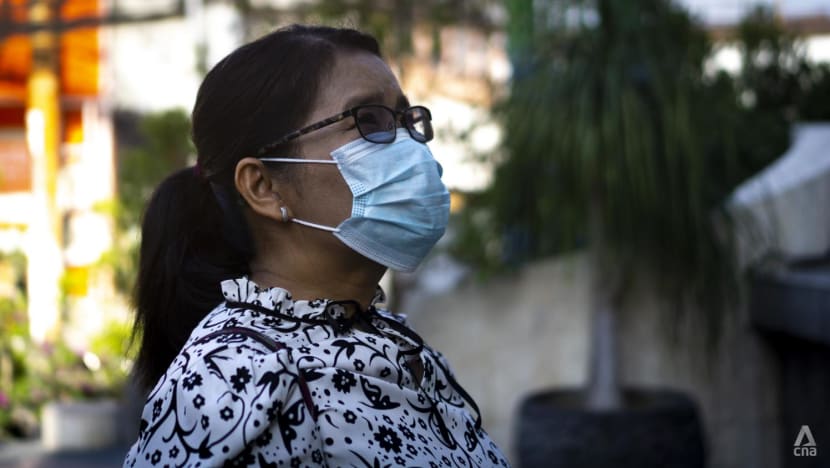
“Every two months, I still have to go to the doctors to replace the silicone guarding my retinas,” the 48-year-old said.
For many Bali locals, the bombing caused more than physical injuries.
Jatmiko Bambang Supeno, who was an assistant manager at Sari Club at the time, said the incident left such a deep mark on him that he only stopped attending psychotherapy sessions last year.
“Before, I wouldn’t participate in an interview like this. Just talking about the incident is enough to make me break down and cry,” he told CNA, adding that for years he has been haunted by one decision he made as an assistant manager that fateful night.
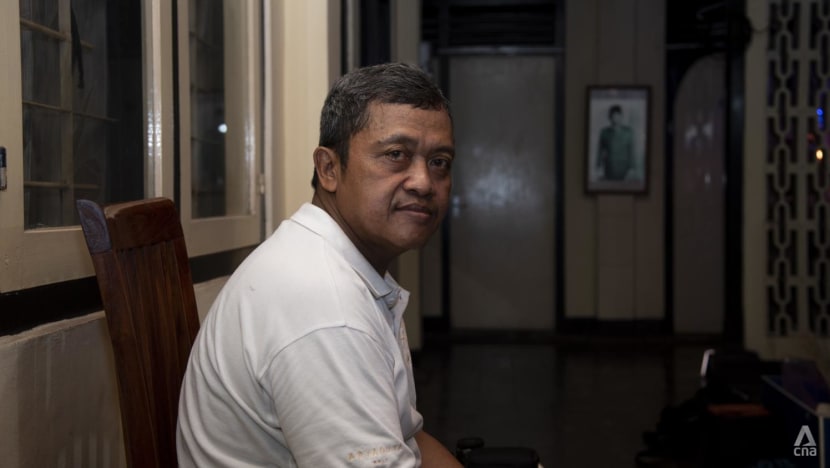
“The club was so crowded I asked the DJ, Mugianto, to help out at the bar. If I hadn’t told him to help out, he would have been protected behind the DJ booth and survived. He died because of me,” Supeno recounted, unable to contain his emotions.
Twelve Sari Club workers died as a result of the bombings, including Mugianto, who like many Indonesians goes by one name.
FINANCIAL HARDSHIP
With his workplace levelled to the ground, Supeno found himself without a job.
“I asked the management (of Sari Club) about my severance pay but they argued they had incurred so much losses because of the attack they weren’t able to provide me with any money,” he said.
He struggled to find another job. The attacks had scared off nearly all tourists, local and international alike, crippling Bali’s economy, which relied heavily on tourism.
“All the (hotel) guests checked out the following day (after the blast),” politician I Nyoman Graha Wicaksana, a member of the Badung Regency Representatives Council told CNA.
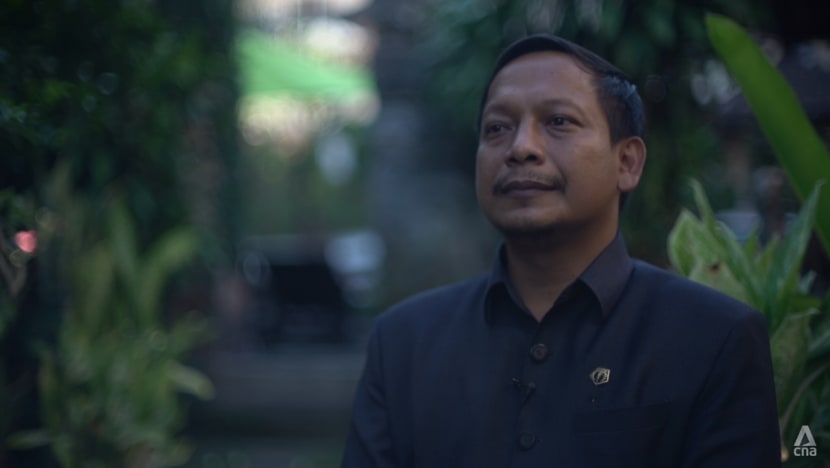
Badung is where Kuta is located. Wicaksana’s family owns a hotel about one kilometre from ground zero.
“Bali was completely deserted because tourists were afraid to come. Tourists only started coming back gradually, three months after the incident,” he added.
With the tourists gone and a job in the tourism sector scarce, Supeno had to work odd jobs for the next few months.
“We really hit rock bottom after the attack. There was even a time when we ran out of food and I had to ask my brother to spare some leftover rice. I was embarrassed to tell him the truth and so I told him the (leftover) rice was for my chicken. But that was our meal,” the father of three recounted.
Nyoman Rencini also struggled to provide for her three daughters after the loss of her driver husband Ketut Sumerawat who was killed in the bombings.
“I was just a housewife who had no skills or qualifications,” the 53-year-old told CNA.
After the death of her family’s breadwinner, Rencini tried her luck in the outskirts of Bali’s main city Denpasar.
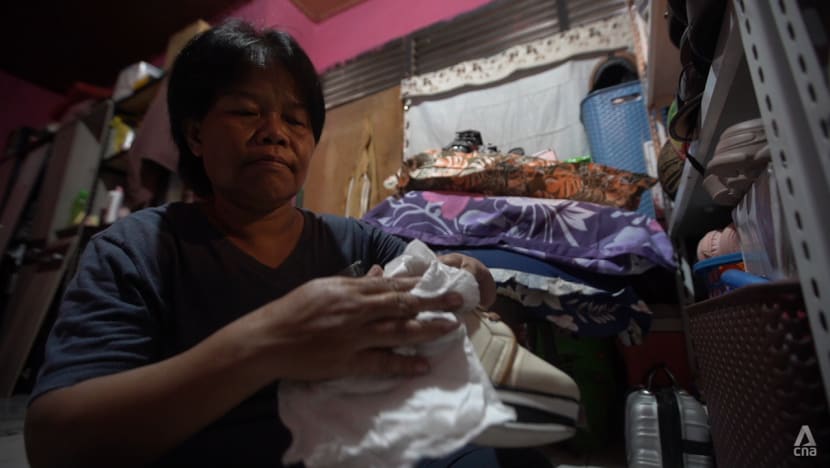
She sold snacks and drinks off a pushcart at one of Bali’s main harbours, earning just enough to get by. She chose to work from dusk until midnight so she could still take her children to school and tend to their needs during the day.
“Thankfully, my daughters never misbehaved because they understood our situation,” she said.
“WHO IS FIGHTING FOR US?”
Rencini was fortunate there was a non-for-profit organisation which agreed to foot her daughters’ tuition fees, enabling all three of her children to attend universities.
Similarly, Marpaung said she was lucky to have found another organisation which sent her to Australia for two of her eye surgeries and foot all of the medical bills.
“But there are many others who weren’t so lucky. It should be the government’s job to look after the victims,” Marpaung said.
“I feel as though everyone is giving more attention to the foreign victims, because their respective governments were able to put pressure on Indonesia on (the victims’) behalf. Who is fighting for us?”
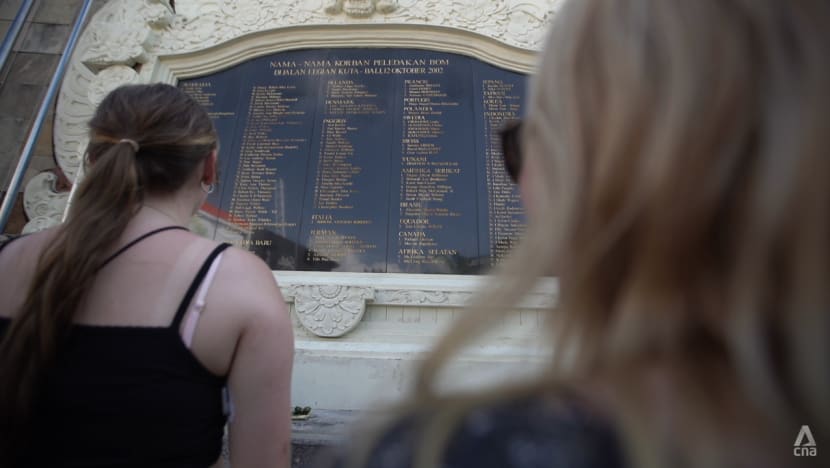
Susilaningtyas, the deputy chairwoman of the Witness and Victim Protection Agency (LPSK), acknowledged that for years the government’s support towards the Bali bombing victims had been limited.
Susilaningtyas, who also goes by one name, said one of the main issues preventing the government from doing more to help the victims stems from the fact that the 2002 bombings occurred before Indonesia passed a law on terrorism in 2003 and on witness and victim protection in 2006.
“The LPSK and the victims had to fight long and hard for the witness and victim protection law and terrorism law to be revised. We had to lobby the central government and members of parliament that these laws needed to include government compensation towards past terrorism victims,” she told CNA.
The witness and victim protection law was changed in 2014 and the law on terrorism was revised in 2018.
In December 2020, 18 years after the incident, the victims were finally awarded between 75 million rupiah (US$5,038) and 225 million rupiah in compensation by the government.
Marpaung said she is happy that survivors and victims’ families finally got what is rightfully theirs.
“It’s not about the amount (of money given). It’s what the compensation represents: a gesture that the government is here for us and will protect its citizens,” she said.













